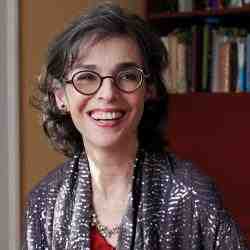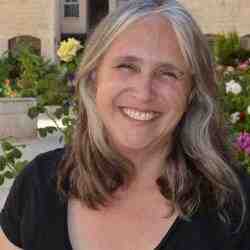Einführung
Through the Institute for Inclusive Education, Jan Wiedemann lays the foundation for the society-wide recognition, promotion and use of the abilities of people with intellectual disabilities (PWDs). He opens up the educational sector for PWDs as teachers and thereby, not only creates meaningful jobs for them and increases the capacity of students to realize inclusion in their future professions, but also makes PWDs ambassadors for their own potential.
Die neue Idee
Jan Wiedemann envisions a society in which the potential of people with intellectual disabilities is fully leveraged, enabling them to contribute as teachers or as problem-solvers in every societal field. Recognizing that the marginalization of PWDs in the workplace actually begins in the education system, particularly in higher education, he is pioneering the realization of this vision in this sector first through his organization, the Institute for Inclusive Education. He empowers people with intellectual disabilities (PWDs) to become teachers and educational specialists on PWDs. The specialists give seminars to future teachers, social workers, active civil servants and managers around living conditions, needs and rights of PWDs. Through showcasing the potential of this empowerment approach in the educational sector, he is laying the groundwork for PWDs in other industries and professions to follow.
By meeting PWDs at eye-level and inverting a traditional power dynamic, students – who will be the future workforce and decision-makers around policy and practice related to PWDs - demonstrably change their attitude towards disability. This new perspective is transferred to their future work places in health systems, public administration or elsewhere where they ultimately design their activities more inclusively and intentionally oriented towards tapping the full potential of PWDS. Practitioners become more able to speak about and address the needs of PWDs but liberated from stereotypes.
Through the three-year training, he equips PWDs with the content, skills and confidence to teach at universities. He not only breaks the isolation of PWDs by offering them a meaningful job in the regular labor market, but empowers them for self-representation. Educational specialists dramatically develop self-confidence, voice, and ownership, and become more independent and more visibly contributing members of society – eventually being ambassadors for their own potential.
Das Problem
In Germany, there are 7.5 million severely disabled people, approx. 1.5 million of them with intellectual disabilities. Of those people, 300,000 work in workshops isolated from the rest of society and are considered permanently and fully unqualified for the regular workforce. They are segregated from the labor market, with little possibilities for personal development and advancement. If integrated into the regular workforce, they often remain isolated or under challenged, e.g. carrying out messenger jobs. They still have no voice in the institutions that affect their lives.
The educational sector plays a crucial role as it is the key to inclusion in other sectors. In the past decade, there has been slow progress in inclusion at schools. However, the inclusion rate is significantly lower at higher educational levels, particularly in universities. There are very few students with disabilities; teachers with intellectual disabilities actually seems unthinkable. At the same time, there is a huge need for professionals across sectors, such as teachers, public administrators or architects, to understand disability and manage inclusion. Yet, they are often insufficiently prepared to deal with the topic. If addressed, education about disability does not address the underlying attitude towards disability. The academic discussion about the rights and needs of PWDs still takes place without them, denying them the right to speak for themselves as experts on their own situation.
The public discourse around inclusion is mainly focused on costs and the deficits of PWDs rather than on their abilities and competencies. This paradigm is being reproduced as future decision-makers and professionals are educated in this framework. There is a huge need to shift this discourse and to realize the right of recognition of abilities and professional development of PWDs (UN Convention on the Rights of Persons with Disabilities).
Die Strategie
With the Institute for Inclusive Education, Jan is not only training PWDs as educational specialists, but actually created a platform and strategy to open all industries for inclusion. The educational sector is his starting point. At the Institute for Inclusive Education, people with intellectual disabilities go through a three-year curriculum in which they learn theory and practice of independently preparing, implementing and evaluating seminars at universities and other educational institutions. The curriculum includes such topics such as the meaning of work and education in the context of disability, basic democratic institutions and participation. Trainees learn and practice educational formats and teaching methods. Reflection of their personal development also plays an important role in the training. During and after the program, participants hold (a series of) lectures and workshops on disability. They do so mainly independently, but with an assistant as back-up support. In some cases, they co-teach with regular university staff. Content of these lectures are practical insights into education, work, health, living, accessibility, participation and assistance to PWDs. The sessions are particularly interactive, fostering reflection and dialogue. The lectures and seminars do not intend to replace other theoretical courses, but to complement them. The target groups are future teachers, social workers, doctors, architects, or students of other disciplines who have to learn how to work with PWDs. Moreover, the institute also offers executive training, for instance for officials from ministries and public administration.
Between 2013 and 2016, Jan Wiedemann ran a pilot training six educational specialists, who have already conducted 70 activities (seminars, speeches, etc.) and thereby reached 3,000 students in the federal state of Schleswig-Holstein. After the pilot, he was granted funds from the ministry for education to found the world’s first university institute of PWDs at the University of Kiel, covering the personal costs of the educational specialists. He aims at long-term anchoring the costs in the university's base budget. 26 universities in Germany are already interested in copying the model. The federal state of Baden-Württemberg will fully finance a training program from 2017 onward, and two other federal states will follow in 2018. Jan is providing assistance and training materials to his replication partners. All new educational specialists will be employed at his institute to avoid doubling administrative structures. Jan’s mid-term goal is to achieve a national scale of 60 educational specialists in 10 federal states by 2020, directly reaching 10,000 students yearly. Moreover, various international universities have shown interest in replicating the model. Although 35 specialists by 2020 may seem like only a small number, Jan believes that their multiplier effect is considerable and that the scaling of this impact will not be through simply increasing the number of specialists but by strategically ensuring that specialists are embedded within key universities and institutes.
The institute’s specialists develop their competencies, such as presentation skills, to an astounding degree. They become more self-confident despite their disability, as well as more socially and emotionally stable. Evidence from the pilot showed that educational specialists became more active members of society. They develop a greater ability to interact with other persons, start new hobbies, or even engage in political self-representation. Their increased independence significantly decreased their need for personal assistance. It also proved that students trained by PWDs significantly changed their mindset towards disability. Through the media, these positive stories are disseminated to the broader public.
Jan uses the educational specialists as an entry-point to open universities for PWDs. At the institute, he has established a networking group of professors and politicians who through the success of the institute start seeing and pushing opportunities to open universities for PWDs in general. With the institute Jan functions as a “positive irritation” to the academic sector. The involved actors started questioning their organizational culture and practice. For instance, the University of Kiel asked Jan to mainstream disability-related content and formats in all their curricula.
Jan envisions a network of inclusive universities, offering academic training and courses to PWDs in various disciplines, and thereby levering their competencies also for other industries and professions, such as health, finance sector or family mediation. He is well aware that the potential of his empowerment model goes far beyond employing PWDs as educational specialists. He is currently planning a second academic qualification for PWDs as counsellors. The above mentioned networking group also functions as an influencer to other sectors in order to recruit new supporters.
Die Person
Jan Wiedemann grew up in a rural area with rather traditional family structures and limited access to education. It was with his best friend that he developed a passion for socio-economic issues. At the age of 15, Jan became the first local chairman of the “friends of the earth”. Later, he joined the union’s movement, pushing environmental topics within the union. Having successfully mobilized his peers for various walkouts and other activities, he gained more and more confidence in his ability to move people and things.
After doing an apprenticeship, he went back to high school to graduate. Later on, he even made his PhD and became a university lecturer. Despite his social background, Jan worked his way up in the academic sector. Since then, it has always been a concern for him to help other people with less social capital in discovering their potential and eventually entering university. He has volunteered as a mentor for (future) students and actively took part in organizational development at the university. Unfortunately, the old-fashioned professors did not like his innovative mindset and Jan was discharged. “However, it made me understand how difficult it is to change organizational culture at the university”, he says.
At his new position, Jan started to engage closely with institutions working with PWDs. It immediately struck him how unrecognized and untapped their potential is and how little room there is for their self-development. The idea for the Institute of Inclusive Education was born – bringing all threads of his life together: his passion for education, his striving for diversity and empowerment and his ability to move things. He saw a huge lever in radically opening universities through bringing in PWDs as teachers; and smartly involved the right players in and outside the university. The impressive success of the institute and its public attention showed that he touched a nerve.



